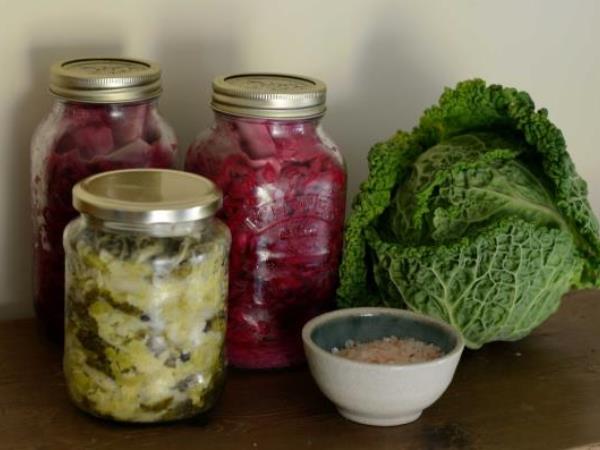Today, we are once again recognizing the exceptional benefits of sauerkraut and pickles, especially due to modern research confirming what our great-grandmothers already knew. Regular consumption of these fermented foods can boost the immune system, improve digestion, and even reduce the risk of certain chronic diseases.
Why is sauerkraut so healthy?
Sauerkraut is produced through fermentation, where lactic acid bacteria break down the sugars in cabbage and form lactic acid. This process not only extends the shelf life of cabbage but also enriches it with beneficial probiotics that positively affect gut flora.
Scientific research has shown that sauerkraut contains:
- High amounts of vitamin C – approximately 20 mg of vitamin C is found in 100 g of raw sauerkraut, which is one-third of an adult's daily requirement.
- Vitamin K, essential for blood clotting and bone health.
- Folic acid, important for the formation of red blood cells.
- Minerals such as iron, calcium, phosphorus, and magnesium.
- Probiotic bacteria, which improve digestion and reduce inflammation in the body.
Regular consumption of sauerkraut can reduce the risk of heart disease since it contains fiber that helps regulate cholesterol. It has also been proven that lactic acid fermentation reduces the presence of substances that could cause cancer.
Sauerkraut and the immune system
One of the most important advantages of sauerkraut is its impact on the immune system. The vitamin C content helps the body defend against infections, while lactic acid bacteria support healthy gut flora, which plays a crucial role in the immune response. Research shows that around 70% of the immune system originates from the gut, highlighting the importance of a healthy gut microbiota for immunity.
According to the European Centre for Disease Prevention and Control (ECDC), the frequency of colds and viral illnesses can be reduced by up to 30% by regularly consuming fermented foods.
How to consume sauerkraut correctly?
To preserve all the beneficial nutrients, it is essential not to cook sauerkraut. High temperatures destroy probiotic bacteria and vitamin C. The best way to consume it is:
- Eat a few tablespoons of raw sauerkraut on an empty stomach every morning.
- Drink a glass of brine (sauerkraut juice) at least once a week, containing lactic acid, electrolytes, and enzymes.
Pickles - less known but equally powerful probiotic
Pickled cucumbers are another food our ancestors used for maintaining health. They contain lactic acid bacteria that aid digestion, prevent constipation, and improve nutrient absorption. Additionally, they are rich in antioxidants, reducing inflammation in the body.
According to the National Institutes of Health (NIH), regular consumption of fermented pickles reduces the incidence of digestive issues by approximately 40%.
Why is fermentation important?
Proper fermentation is crucial for preserving beneficial bacteria and nutrients. Sauerkraut and pickles should be naturally fermented, without the addition of vinegar, to develop the correct probiotics. Good fermentation results in sauerkraut having a mild, slightly acidic taste, without unpleasant odors or excessive foam.
In summary, sauerkraut and pickles are not only tasty foods but also exceptional natural probiotics that support digestion, strengthen the immune system, and promote overall health. To retain all their beneficial properties, eat them raw and incorporate them regularly into your diet ...









 Would you like to be informed about news on the website?
Would you like to be informed about news on the website?

